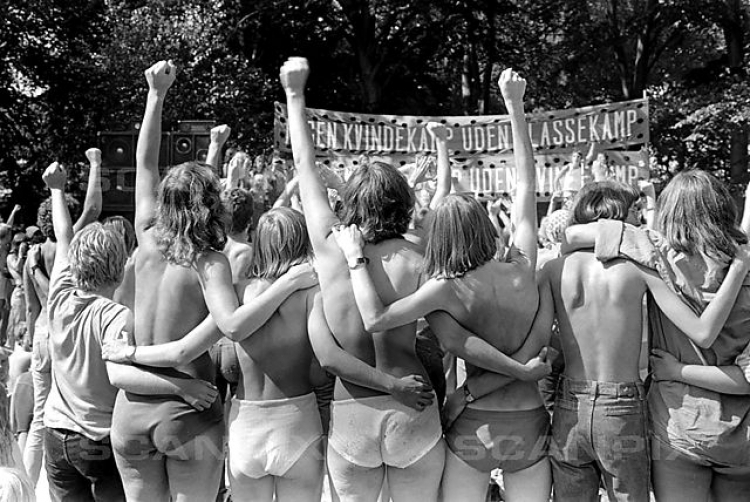Foreign politics is a field that tends to be considered comparatively male-centric. The Swedish government has made a policy decision to take a more feminist direction in foreign politics, at the core of which is women’s economic and political rights. Women are being promoted to a range of political positions – the heads of the Swedish Ministry for Foreign Affairs currently being three women: Margot Wallström, Isabella Lövin and Anna Linde – as well as involved in the prevention of violence, conflict resolution and peace-keeping. The inclusion of women is not only a question of equal rights: it also aims to achieve a more peaceable society. Providing an overview of all of this will be a photographic exhibition opening at the Museum of Occupations at 17:00 on 8 March entitled ‘Pioneers of feminist foreign politics: Women in Swedish diplomacy from 1632 to the present day’. It forms part of the three-fold #naistEST exhibition, wherein the history of the Estonian women’s movement will be presented in ‘Anniversary of the Estonian women’s movement: Marie Reisik 130’ and the topic will be viewed from a French angle by ‘Cherchez la femme’. All three exhibitions will be open until 30 April at the Museum of Occupations in Tallinn.
How did the position of women change in society during the 20th century, at least in one Nordic country? Everyone knows beloved children’s author Astrid Lindgren. As a young woman she was very strongly influenced by the time in which she lived and the norms that accompanied it. But as a writer, and later as a public figure, she effected a sea change in both time and the way we think. Director Kristina Lindström’s documentary Astrid (Sweden, 2015) uses unique archive material to shine the spotlight on the life of this socially active woman, underscoring a number of aspects related to women’s rights and how they have changed over the years. The documentary will be shown at the Museum of Occupations at 18:00 on 13 April. Admission is free of charge.
It has been said about Mette Knudsen that no other film director has ever studied the lives of women more closely in 20th- or 21st-century Denmark. She has produced a swathe of documentaries and films at the heart of which are Danish women, their rights and the conditions in which they live. Her latest documentary, The Long Road, completed in 2016, can be seen in Tallinn at the Museum of Occupations at 18:00 on 13 April. It focusses on the history of the women’s movement in Denmark. Admission is free of charge.
The Artis cinema will be screening a programme of films from 4-7 March which includes the short film Balance written by Maria Winther Olsen (Faroe Islands) and Josefine Pil and Ane Mikkelsen (Denmark). The film examines gender equality in the Nordic countries. A programme of four films put together by the French Institute and the Estonian Institute of Human Rights – Violette, The Beautiful Season, Queen of the Hills and What Happens Now? – will also be screened. The programme is free of charge.
#naistEST is being organised in cooperation with the Museum of Occupations, the French Institute in Estonia, Feministeerium, the Nordic Council of Ministers’ Office in Estonia and the Estonian Institute of Human Rights.

